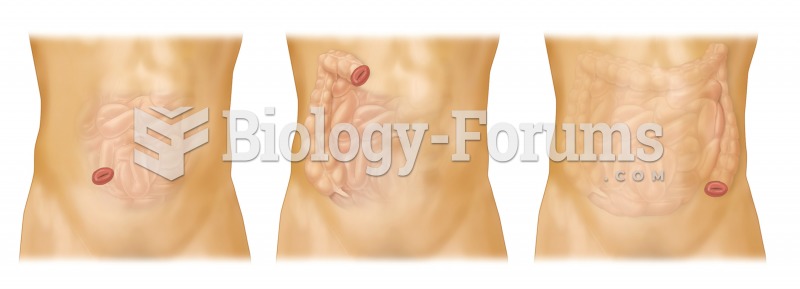|
|
|
The first successful kidney transplant was performed in 1954 and occurred in Boston. A kidney from an identical twin was transplanted into his dying brother's body and was not rejected because it did not appear foreign to his body.
Although not all of the following muscle groups are commonly used, intramuscular injections may be given into the abdominals, biceps, calves, deltoids, gluteals, laterals, pectorals, quadriceps, trapezoids, and triceps.
Human kidneys will clean about 1 million gallons of blood in an average lifetime.
Normal urine is sterile. It contains fluids, salts, and waste products. It is free of bacteria, viruses, and fungi.
Many people have small pouches in their colons that bulge outward through weak spots. Each pouch is called a diverticulum. About 10% of Americans older than age 40 years have diverticulosis, which, when the pouches become infected or inflamed, is called diverticulitis. The main cause of diverticular disease is a low-fiber diet.
 Water striders serve as a model organism for the study of sexual conflict between males and females.
Water striders serve as a model organism for the study of sexual conflict between males and females.
 As a result of sharing its environment with humans, this macaque had the opportunity to steal an ast
As a result of sharing its environment with humans, this macaque had the opportunity to steal an ast
 Cushing’s syndrome. A photograph of a woman with the characteristic facial features of Cushing’s syn
Cushing’s syndrome. A photograph of a woman with the characteristic facial features of Cushing’s syn




